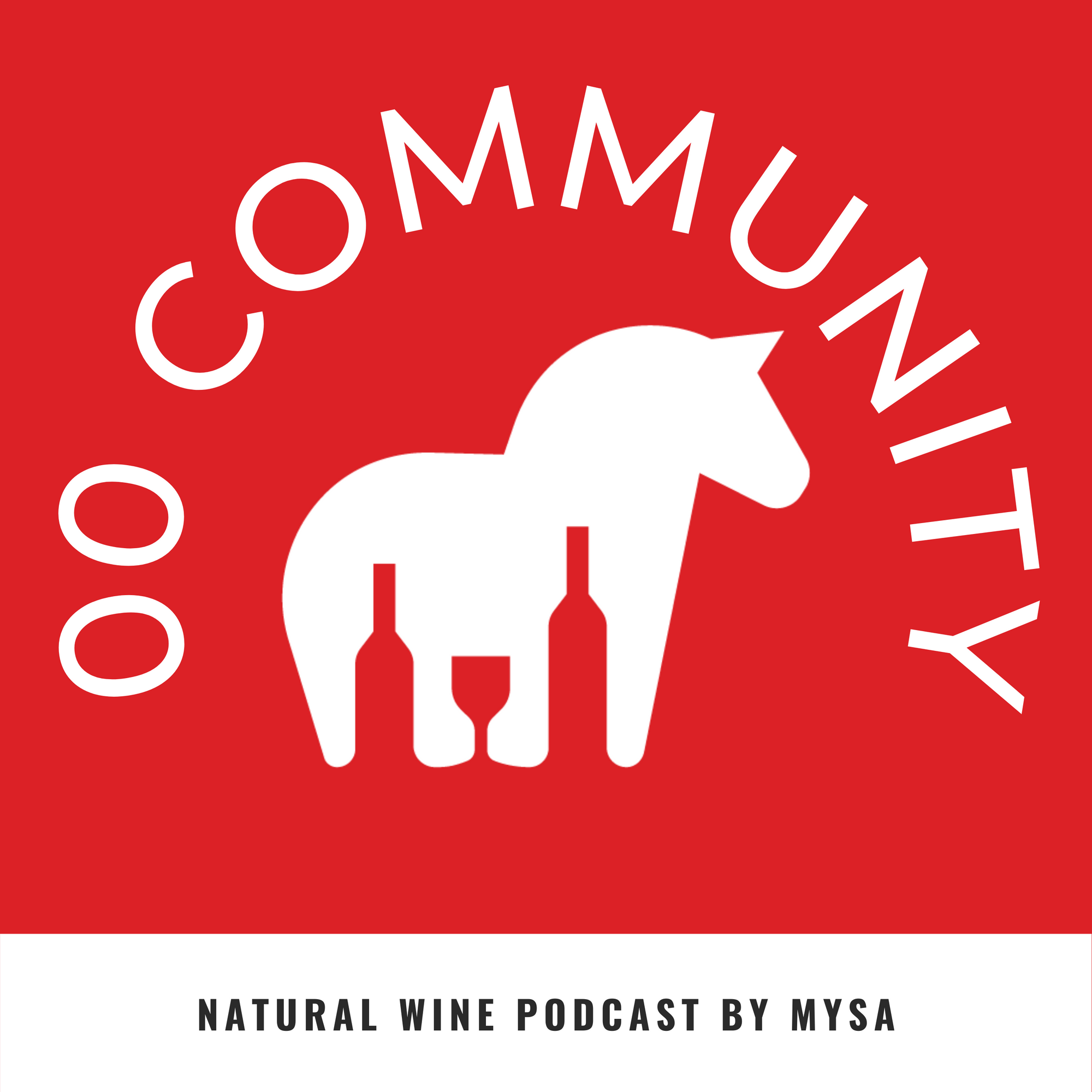Natural Wine Reading Recommendations
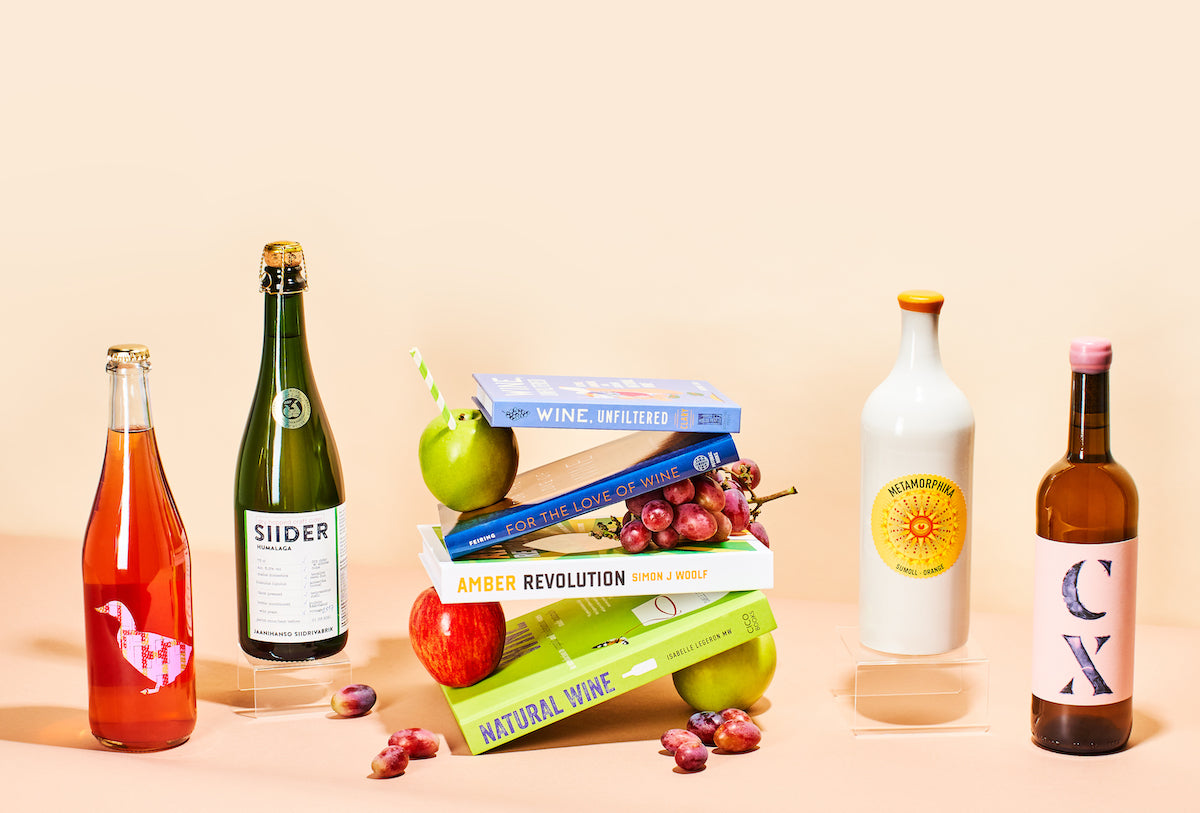
THE INTRO
Natural Wine for the People: Alice Feiring
The most recent addition to the natural wine book world, you'll see Alice across this list, but this book is set up as an all inclusive overview of the natural wine movement, what it means to be a natural wine, who is making these wines, how they make them, and even some information on where you can find them! The illustrations throughout are gorgeous and make it a really easy read. If you're wanting to dip your toe into the natural wine community, this is the PERFECT place to start.

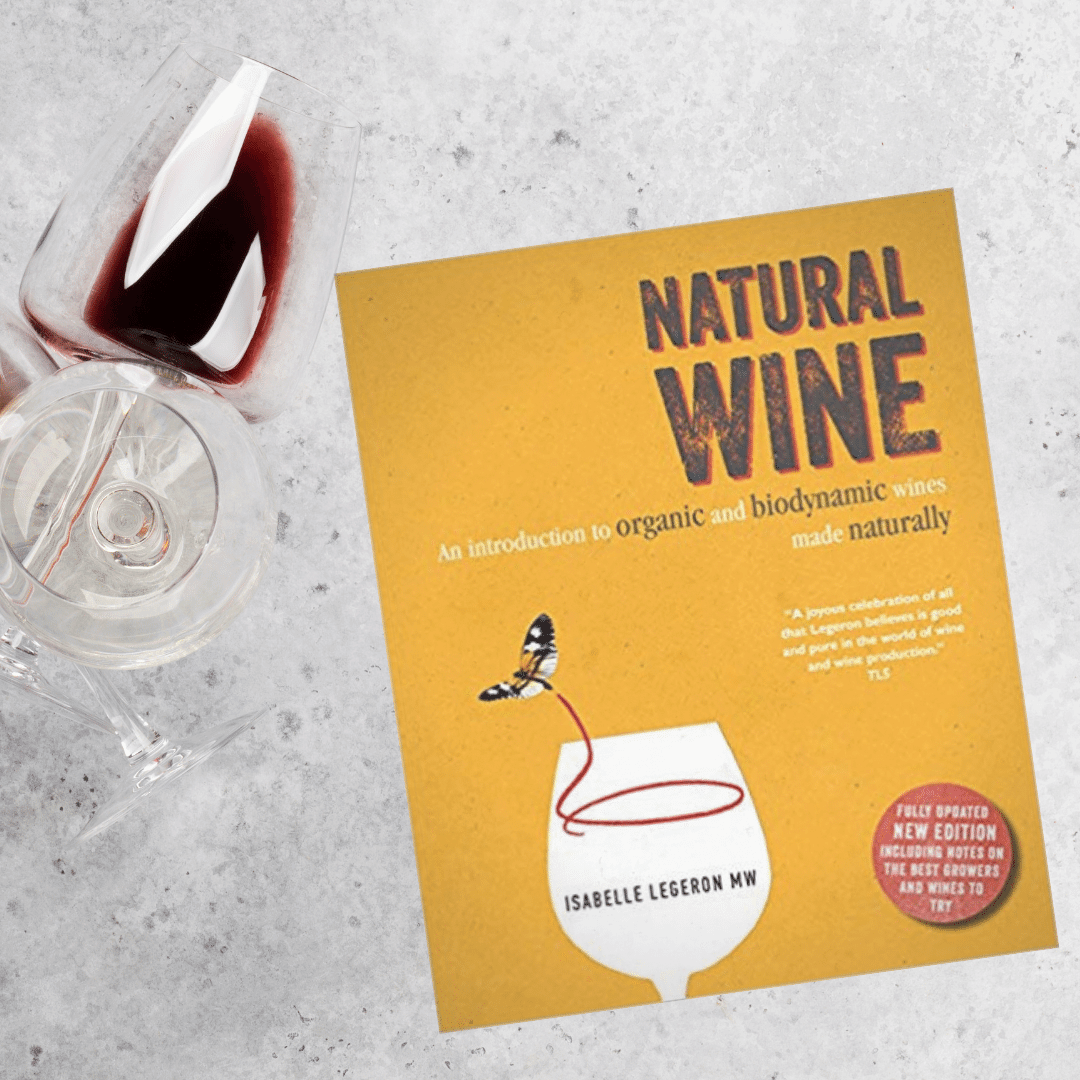
THE TEXTBOOK
Natural Wine: Isabelle Legeron
We're now getting slightly more serious about your initial studies! At Through the Grapevine, we consider Isabelle Legeron as the final word on natural wine. She is a Master of Wine (i.e. she has gone through the highest ranks of formal wine education) and speaks with immense passion about organic agriculture, biodynamics and dry farming. Consider this book like your textbook. It reads like you will have a test about specific sections and has fun anecdotes about some of the most famous natural wine producers. It also goes over some of the most famous natural wines that you can hopefully find and compare against some of Isabelle's tasting notes!
THE NOVEL
Voodoo Vintners: Katherine Cole
Like I mentioned in the intro, I ordered this book based on the name knowing nothing about biodynamics while in my first WSET class. After you've gotten wine basics down and have your natural wine textbook for guidance, jumping into Katherine's novel on biodynamic winemakers in Oregon is a great next step. All of the anecdotal information about how these vintners create such beautiful wines and all the approaches to keeping a sustainable vineyard will inspire you and make you want to book a trip to Willamette immediately! (Note, we still haven't been out there yet, please send suggestions!) I can't recommend this book enough considering how life-changing it was for me and if you're already interested in natural wine, I am sure it will not steer you wrong.


THE GUIDE
Wine, Unfiltered: Katherine Clary
Since initially writing this blog there have been several other wonderful books that came out, including Wine, Unfiltered from Katherine Clay! You may also know her as the editor of the Wine Zine and her book is set up in an easy to understand format that you can use to reference different natural wine terms and how to navigate finding them out in the wild.
INTERMEDIATE LEVEL
After you've read through these, you'll definitely be wanting more! Check these books out for slightly more advanced reading, while still being quite approachable!
THE INTRO
You'll start to see a LOT of Alice along this list now, but she is really the most published author in this area with excellent prose. This book is focused on advocating for producers to make their wine in more of a natural way and actually walks through Feiring producing wine herself. It is a great commentary on where the industry has gone wrong, in her opinion, and is a perfect introduction to the narrative around why natural wine can and should play such an important role in the future of winemaking.
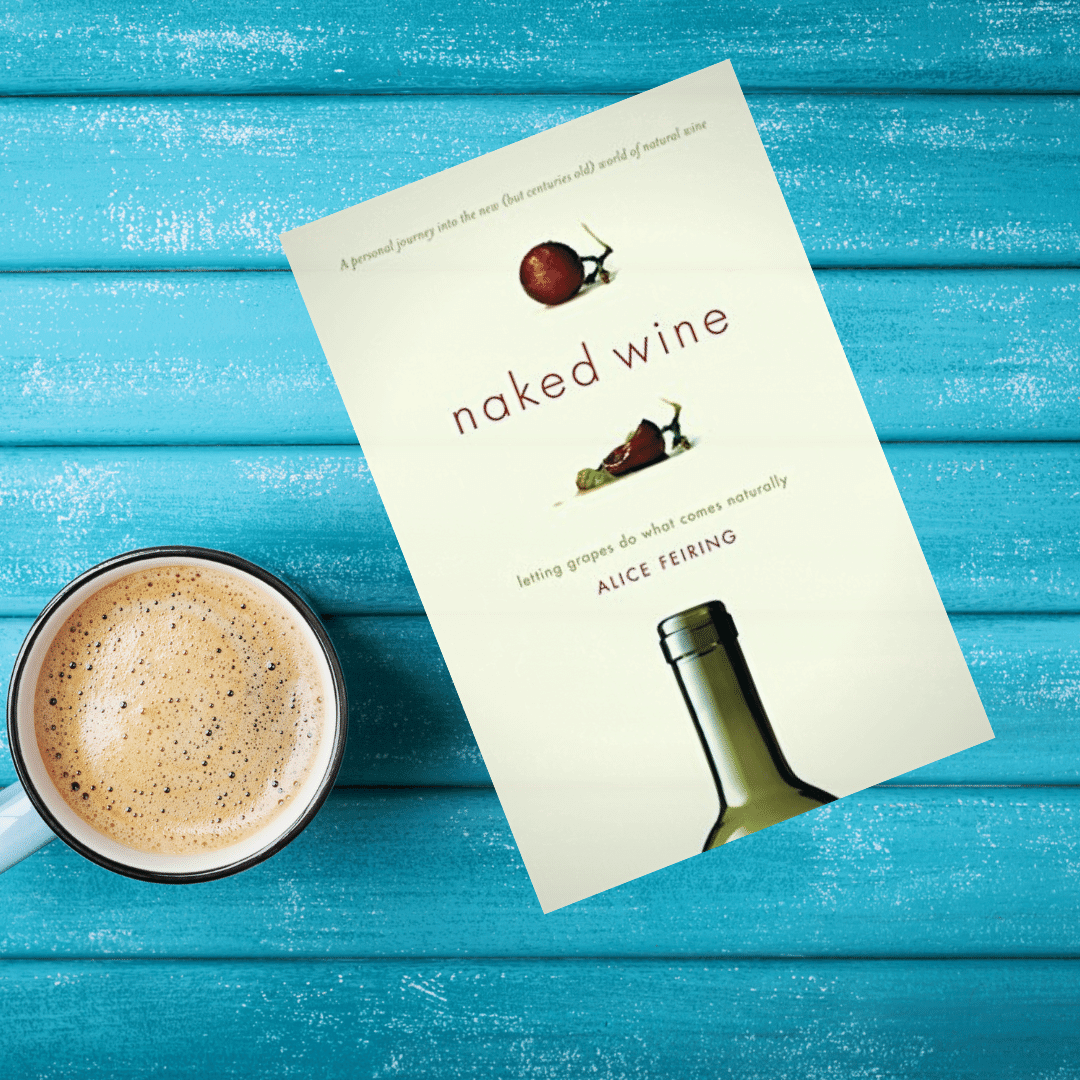
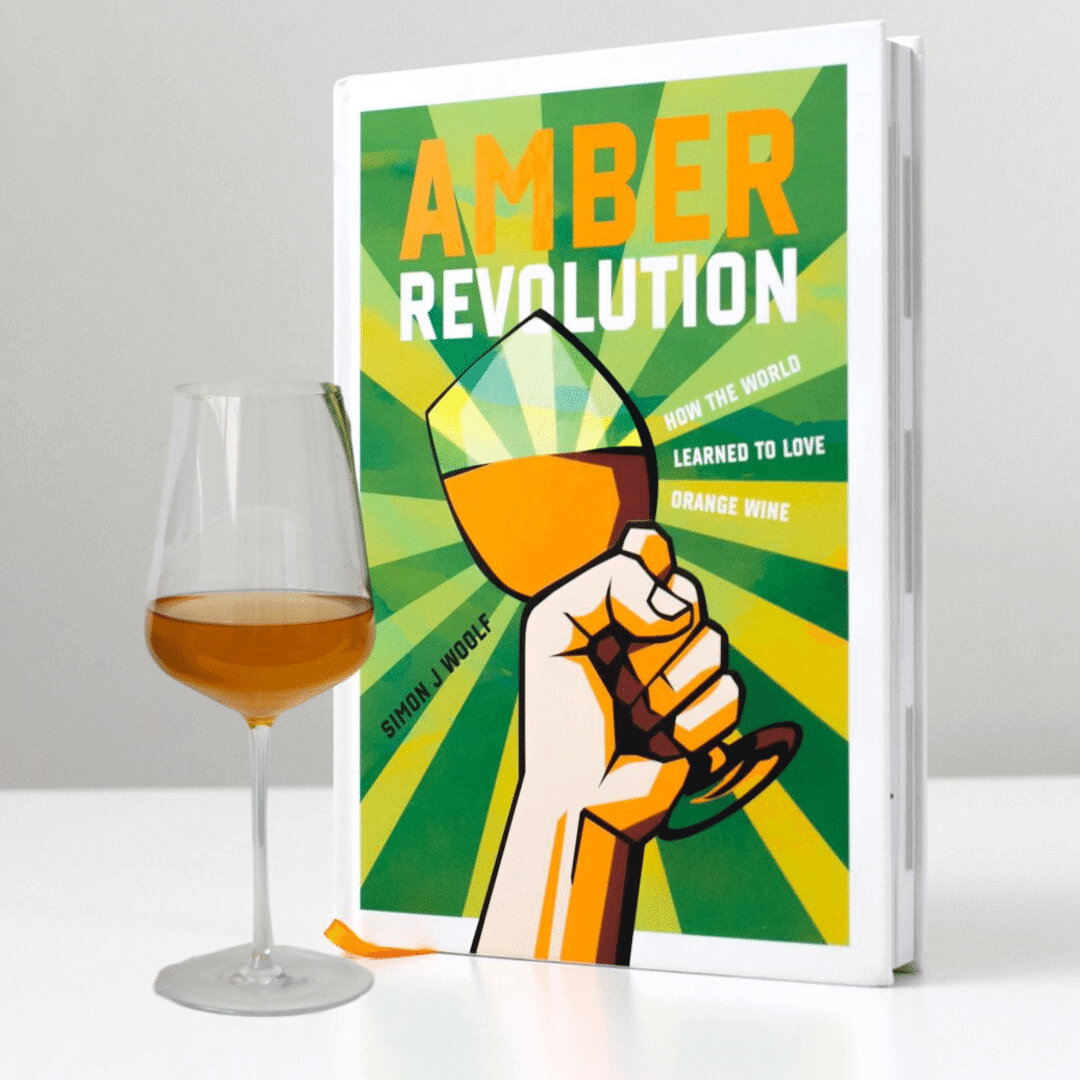
THE TEXTBOOK
This book is a fun one with excellent references and gorgeous illustrations. This book aims to tell the forgotten story of the most ancient wines, orange wines, or white wine made like a red wine. As not a very accepted wine practice currently, Simon walks through its current struggle for its addition to wine lists and recounts its history from the Caucasus to the Adriatic. I put is at a textbook because there is a big focus on producer profiles, with 180 of the best producers from 20 countries outlined with beautiful imagery.
THE NOVEL
An Unlikely Vineyard: Dierdre Heekin
As you may know, we really love Dierdre and the wines she's making in Vermont! This book is a fun and illuminating look into her process of creating the vineyard, the struggles of creating one in such a cold location, the role of hybrid grapes and why she decided to use them. It's incredibly informational but reads more like a novel because of her writing style. You can also see the artistry in everything her and her husband do through the images she places strategically throughout the book.
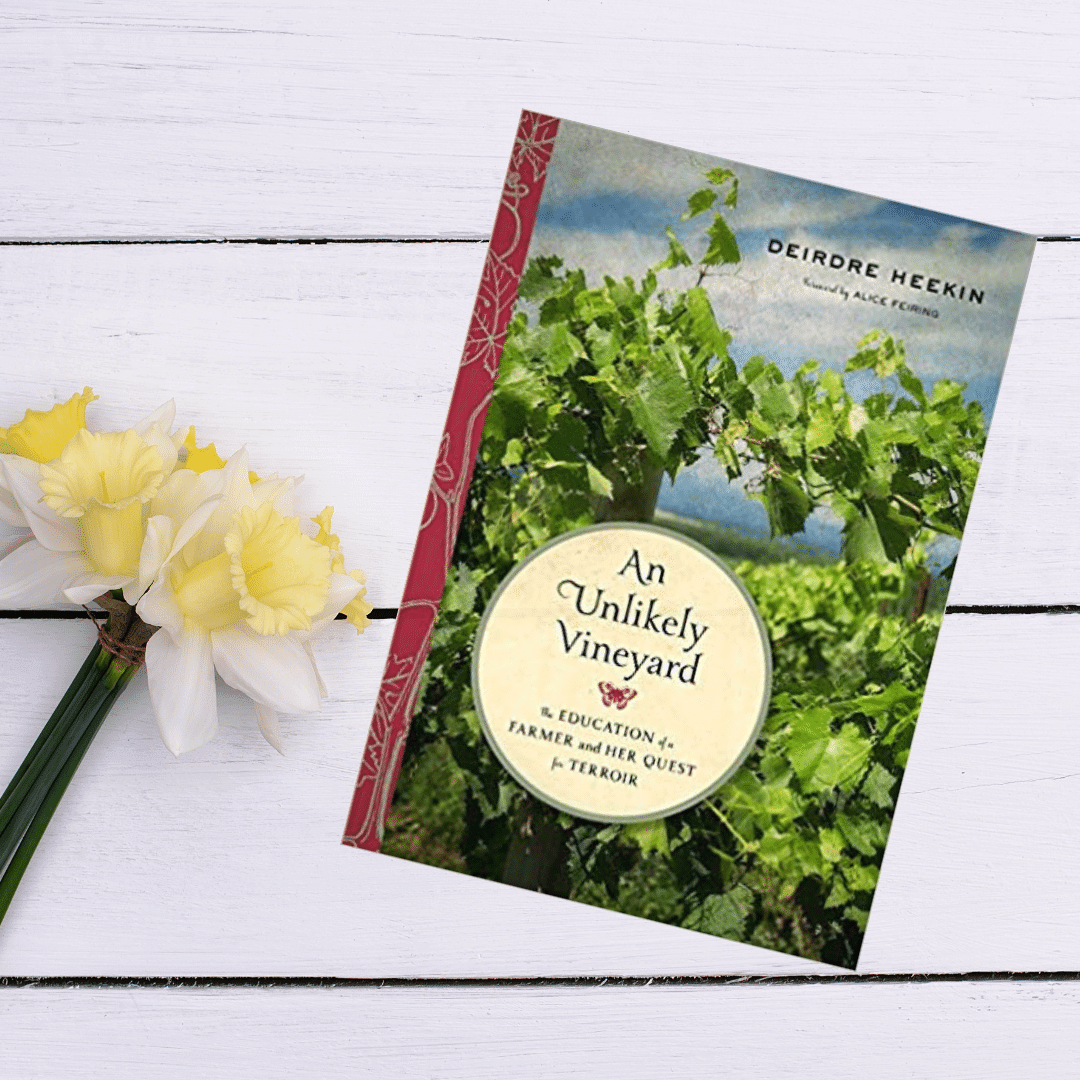
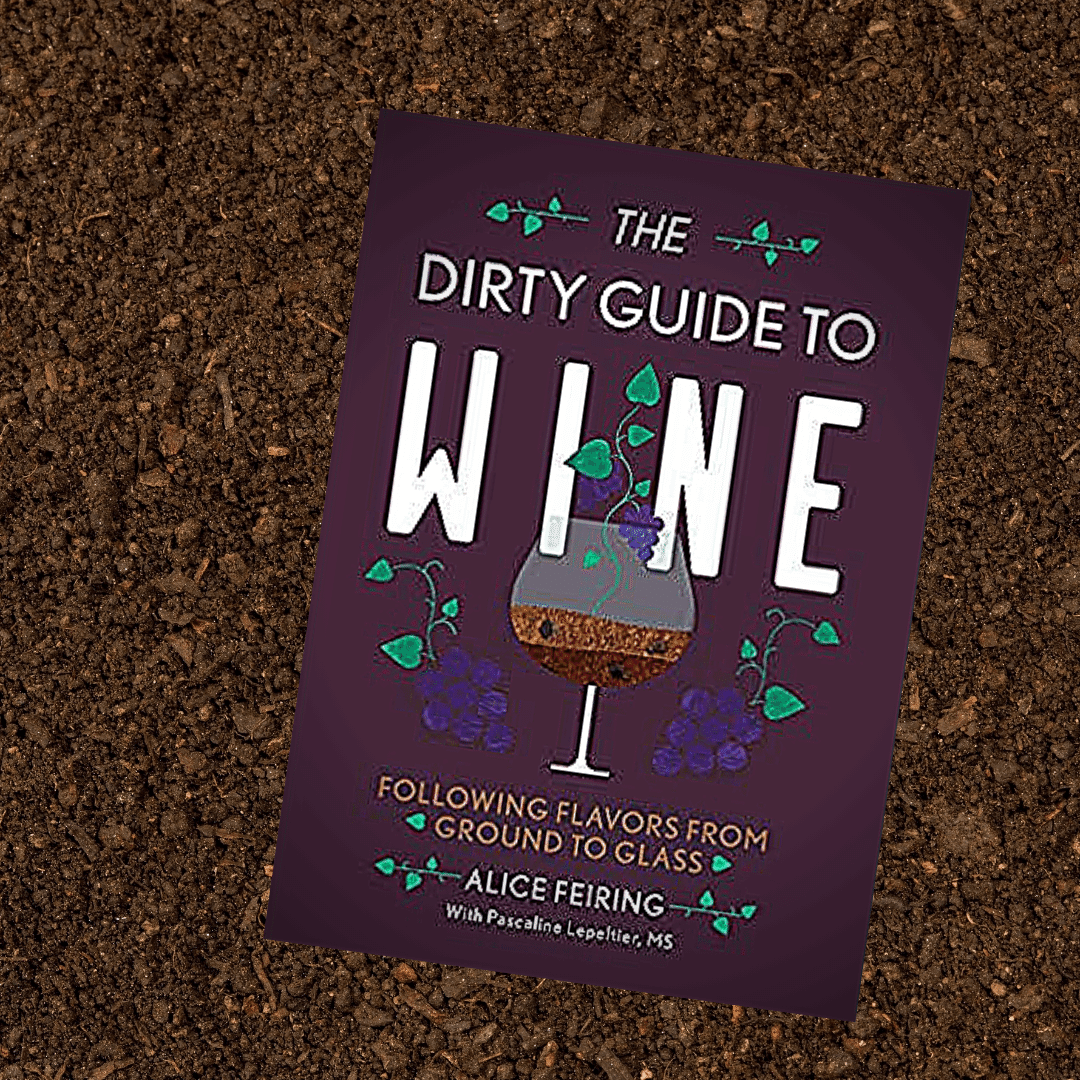
THE GUIDE
The Dirty Guide to Wine: Alice Feiring
Written with Pascaline Lepeltier, this book focuses on exactly what it sounds like, the dirt and where our wine comes from. Alice advocates for wine having a sense of place, has wonderful explanations of how terroir manifests itself and gives an idea of why we tastes what we taste in our wines from the soil, without going too far into any science that will be over your head. There are sections about each type of soil and what it can mean in the wine. In natural wine, where it can be difficult to blind like the traditional wine programs, this gives you a grounding (get it?) for relevant characteristics in natural wine!
ADVANCED LEVEL
By this point, you'll have a ton of wine knowledge, both natural and conventional, and you'll be ready to step into these heavy hitters!
THE TEXTBOOK
The Science of Wine: Jamie Goode
When you get to the advanced section you, no doubt, should have quite a bit of experience with wine at this point, this book will turn your wine world upside down! While it's pretty technical (thus putting it under the textbook section) Jamie does a great job explaining many of the scientific aspects of wine and comparing them to what may really just be wine myths. Jamie focuses on the things we know while also being very clear about the areas that are still a mystery to scientists (think biodynamics). While this book isn't at all focused on natural wine, it gives a nod to these inexplicable things that create the essence of a wine and well equips any natural wine lover to have a conversation about conventional AND non-conventional aspects of wine.
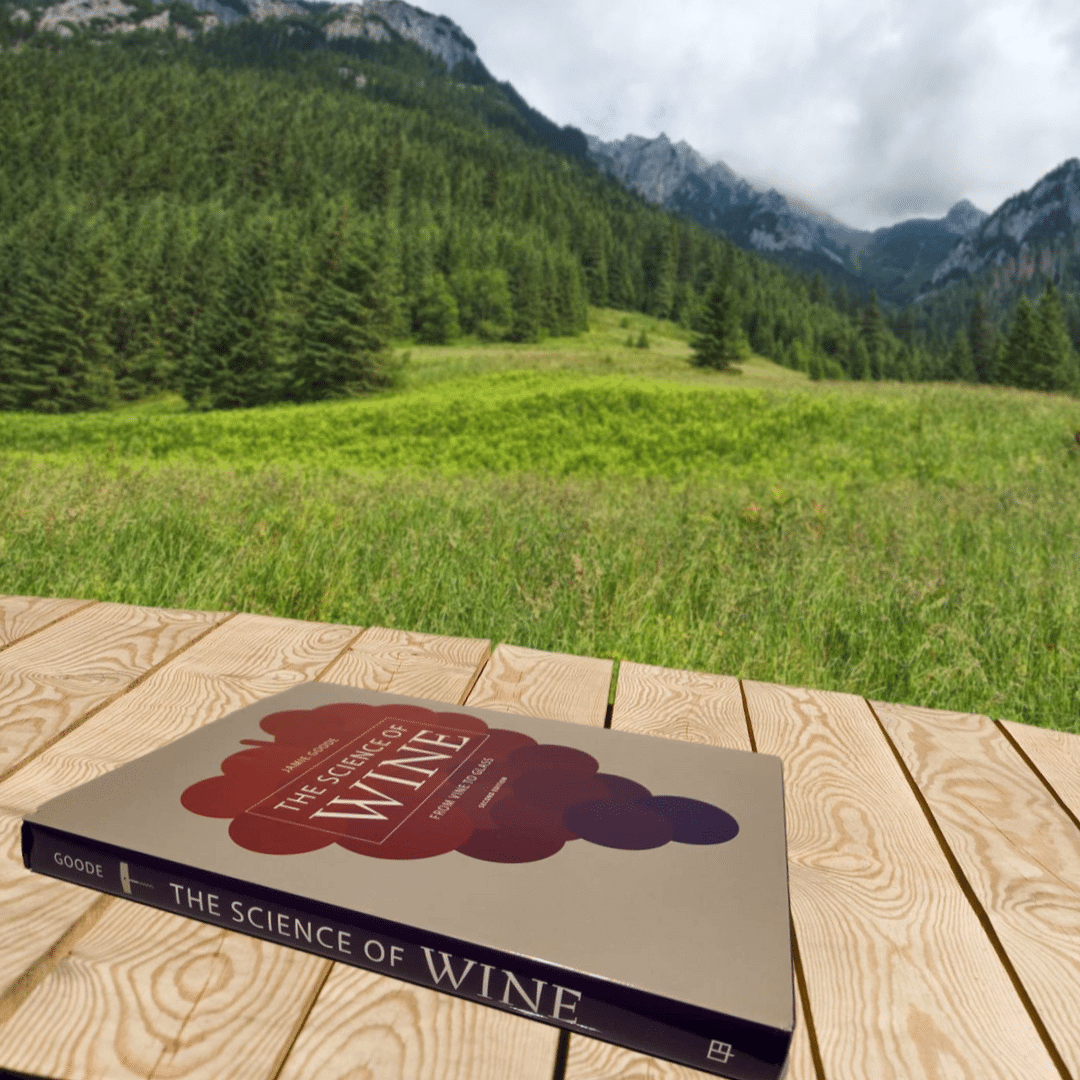

THE NOVEL
The Battle for Wine and Love: Alice Feiring
At this level you should be very familiar with Parkerization and the issues it caused over the past few decades. Alice goes after "Big Wine" in this book and the critics around them. It's incredibly entertaining to read, and honestly quite sassy (the rest of the title is "How I saved the World from Parkerization"). While we don't always agree with what Alice says and how she says it, this book is a fun and easy read that, after you've gone through some of these other books, will bring a lot of perspective to where natural wines currently fit in the fold of the broader battle for diversity in wine.
THE GUIDE
Flawless: Understanding Faults in Wine: Jamie Goode
As with many of Jamie's books, this one is also a bit dense and will take some time to get through, however, the message and ideas around it give great context to some of the reasons people have issues with natural wines. In this book, Jamie goes through what the main faults in a wine are but also debates whether or not some of these are in fact faults at all. Definitely more technical than Alice's writing with a lot of chemistry references, but after reading through the rest of these books you should be able to understand!
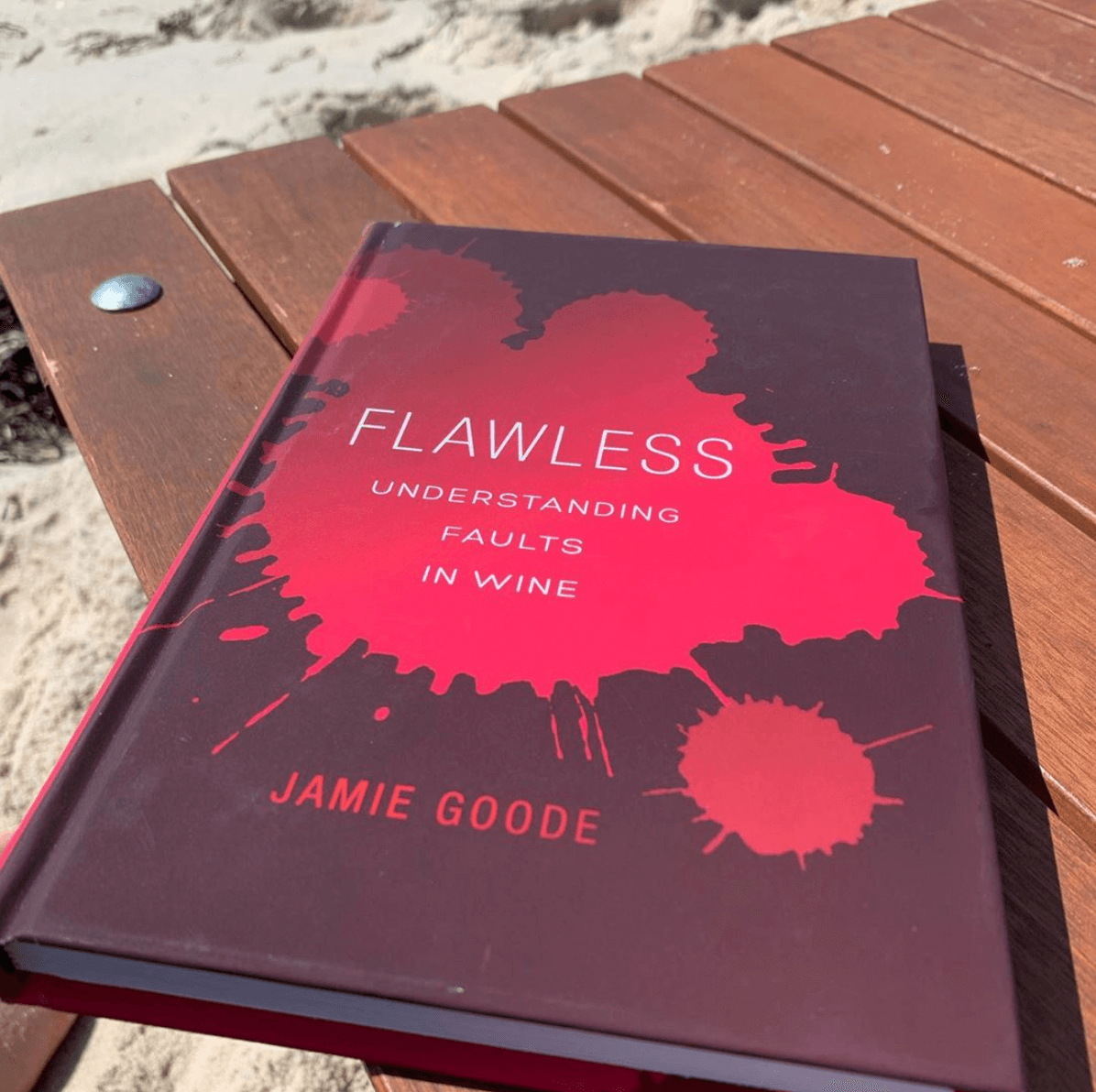
OTHER BOOKS WE LOVE
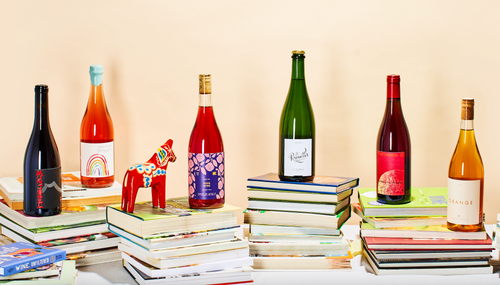
WINE. ALL THE TIME: MARISSA ROSS
While not technically a book on natural wine, Marissa is a huge player in the Natural Wine world and wrote a book that is completely approachable to wine generally as well as hitting on the finer points of wines she loves, which are almost exclusively natural wines! If you are really dipping your toe in the water with your wine knowledge, I would absolutely start with this book for basic terminology, regional information, and general laughs about how ridiculous the wine world can be. She has a special "Ross" test that you'll learn about as well that we had my granddad try over Christmas to much success, so have fun with it!
FOR THE LOVE OF WINE: ALICE FEIRING
You can't be an expert in natural wine without spending some time deep diving into Georgia! Amber Revolution gives a great overview of these orange wines, but this book goes far further into the history and the wonderful anecdotes from Feiring's own travels in the country. As the country with the greatest history of making wine, over 8,000 years, and strong believers in natural winemaking, Georgia is the perfect backdrop to understand where wine really came from and how it plays into our current views of conventional and natural winemaking.
ADVENTURES ON THE WINE ROUTE: KERMIT LYNCH
Like Voodoo Vintners create my interest in biodynamics and natural winemaking, so did Kermit's book create my interest in importing wine. This, slightly dated, book shows the travels of a man on a mission to bring in something completely different from the norm at the time (think back to the Parkerization) and searched out small producers, focused on terroir to bring to the US. Kermit is a legend in the wine world and really opened up the world for the possibility of natural wine and you'll feel like you're there with him.
I TASTE RED: JAMIE GOODE
One last science book to nerd out on from Jamie! If you're interested in natural wine and also want to know how to taste it, I highly recommend this book over any of the deductive tasting courses or what is out there in conventional wine literature. Most of these courses and books focus on the standard qualities you find in a merlot, sangiovese, etc. but this book allows you to go beyond the conventional expectations of what you're supposed to taste and gives you a framework of how to taste scientifically so you can understand the wine better. Great graphics too!
2. NATURAL WINE MAGAZINES
Print media isn't dead and there are some great independent magazines out there writing about wine and the natural wine movement!
Pipette: Our partner and wonderful publication on natural winemakers, places to find natural wine across the world, and the people who promote them is the best read for your next flight to a foreign wine destination, or to bust open with a bottle of pet-nat.
Glou Glou: A very fun and fun-loving look at producers with graphics and even some podcasts/videos throughout (in the online version) to give you a first-hand look and sensory experience (minus tasting the wines) of natural winemakers. You can see issue 1 online and order the next 2 off the site!
The Wine Zine: The Wine Zine is a biannual print publication about the culture, ideas, and people behind natural wine. Each issue features original content by writers, illustrators, photographers, and winemakers exploring natural wine, its origins, key figures, and thoughts.
Noble Rot: While not fully focused on natural wine, this magazine is famous for its cover art and has a large focus on food as well (the magazine also has a restaurant , or the other way around?).
All are very fun reads and a nice break from some of the denser books we have listed above.

3. NATURAL WINE BLOGS
In this section you're likely to see some repeated names, so don't be shocked!
No MOG Blog: We have a natural wine blog that covers topics like, what is brutal wine, where to find natural wines across the US, and how to know if a wine is natural.
NAD Wines: Our Friend Nadia Pugh has a lovely blog and Instagram feed focused on natural wines, and in particular those in California.
The Feiring Line: No surprise here to see Alice Feiring again. While it does cost to subscribe to her blog (I believe it's $68 currently) her in-depth analysis and frequent commentary is worth it for those of you wanting to have new, well-written, content on natural wine with frequency!
Rachel Signer: While most of her time is dedicated to Pipette (see below) and her winemaking (Persephone wines), Rachel also has an excellent website with resources for natural wine lovers like producer profiles, regional profiles etc.
Sprudge: Best known for their work with coffee, Sprudge also has an excellent section on wines, focusing on natural winemaking. They have great reviews on wines, bars, importers (though we're not on there yet ;) and producers.
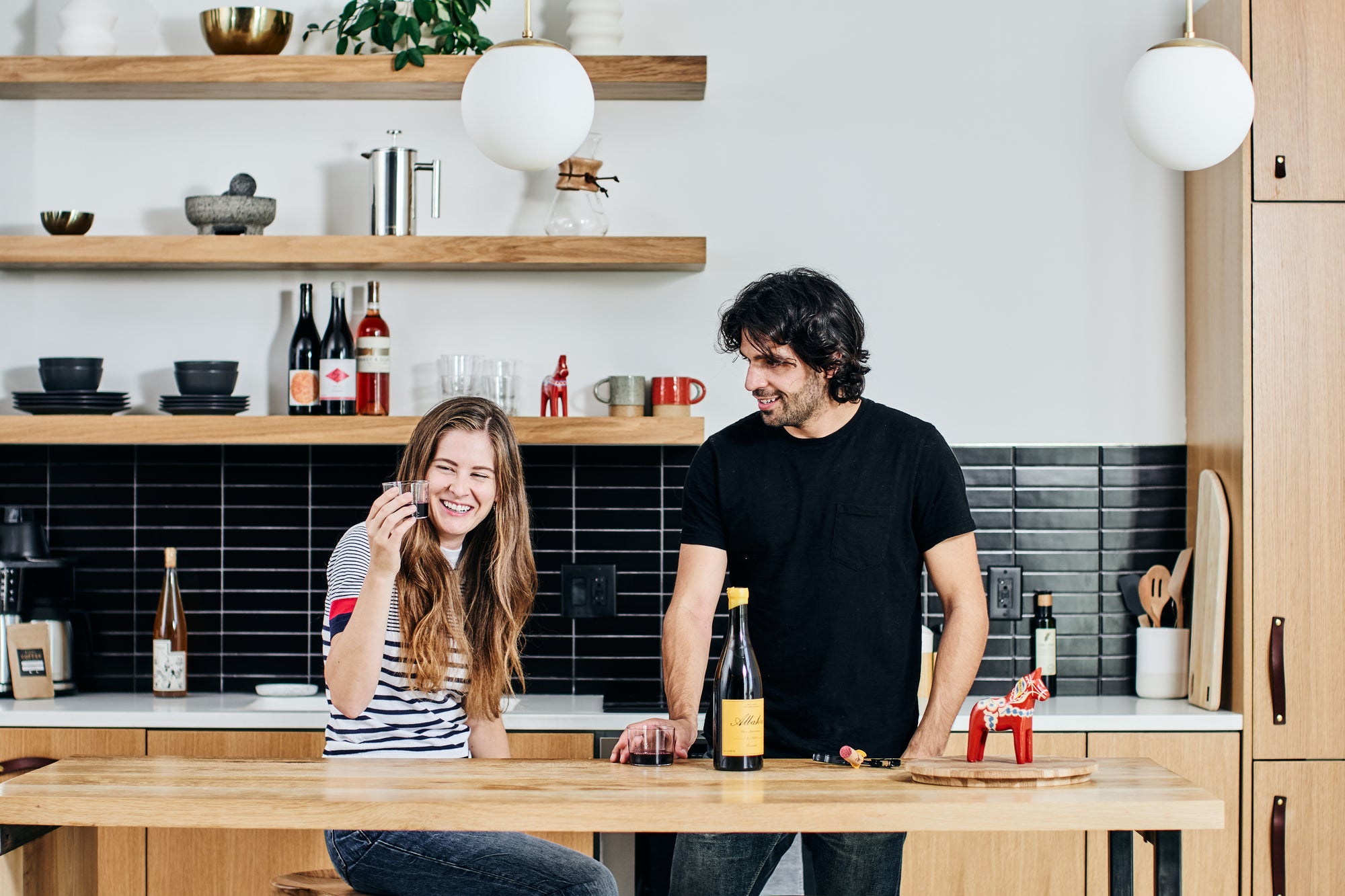
Rich text
From what I know, there is only one podcast out there exclusively dedicated to natural wine (see below) but there are also several excellent episodes that go into what natural wine is, who makes it and other great topics we've included as one offs below so you can get a full picture!
Natural Disasters: While Marissa Ross's book isn't all about natural wine, this podcast definitely is! Her and Adam Vourvoulis cover topics from defining organic and natural, to meeting with producers and talking about their wines, to how to serve wine. It's appropriate for all levels of natural wine students and should have you laughing as well as craving a glass of wine ASAP.
MYSA Natural Wine Podcast: We still need a better name for our podcast, but we do have one with lots of great content like terms you should know, producer profiles, and more. You can access here!
Here are a list of others that are great to check out on a one off basis to give more context:
- I'll Drink to That - Alice Feiring Episode
- Wine for Normal People - Isabelle Legeron Episode
- In the Drink - Gut Oggau Episode
One last one I include to give context to how people who do not like natural wine feel: Vinepair - The Problem with Natural Wine
Will leave this one here without commentary :)
5. Conclusion
There are so many great ways to learn about natural wine! We hope this list helps get you started on your education journey. Please also check our social media for events on this topic up and message us with any new additions we should be aware of!
